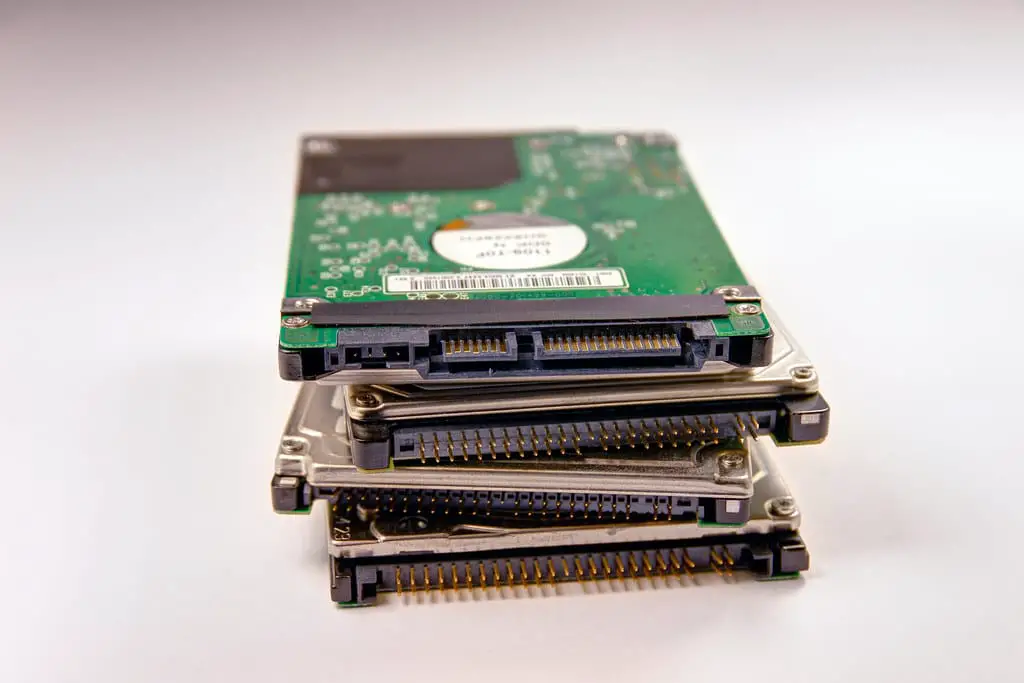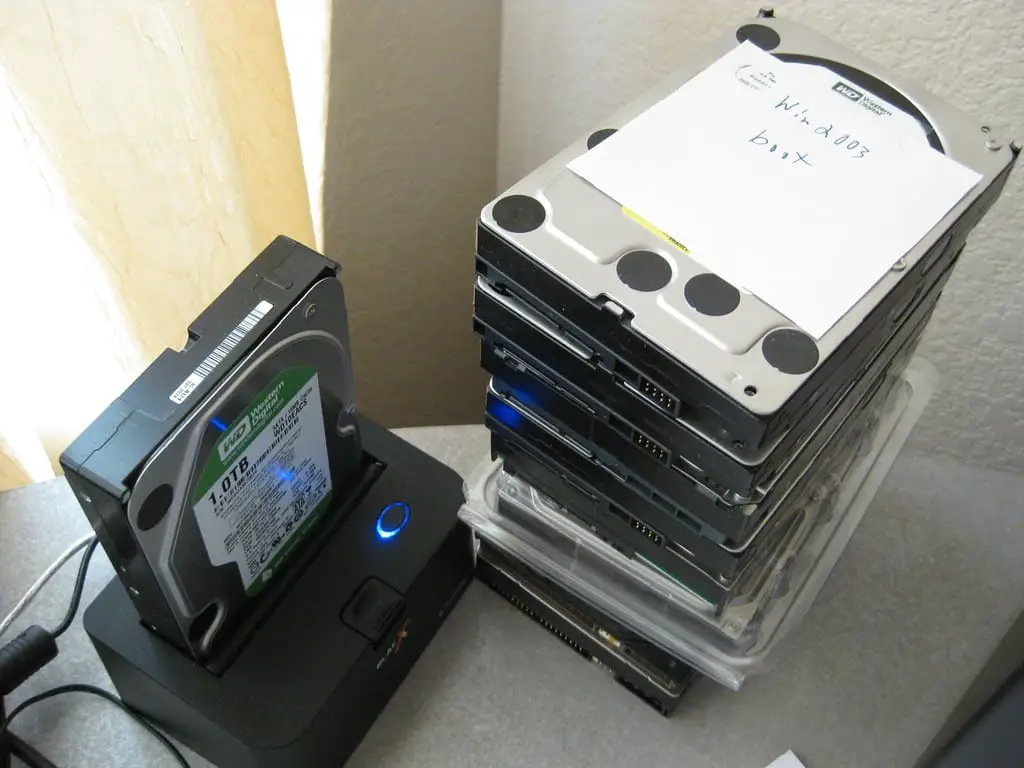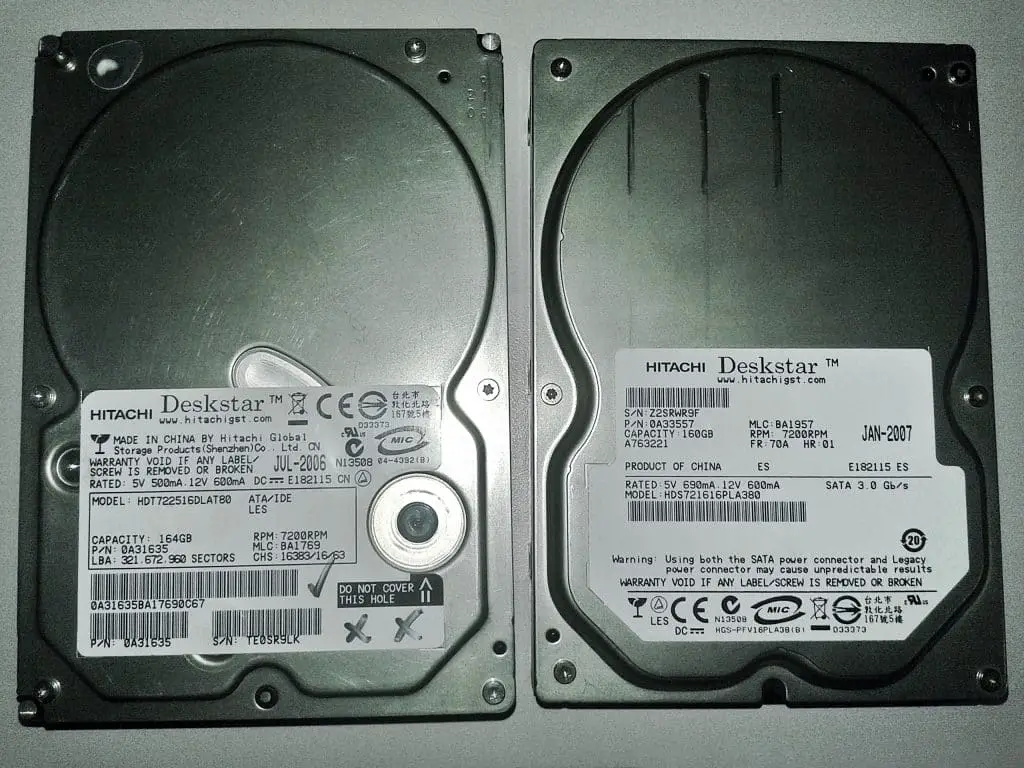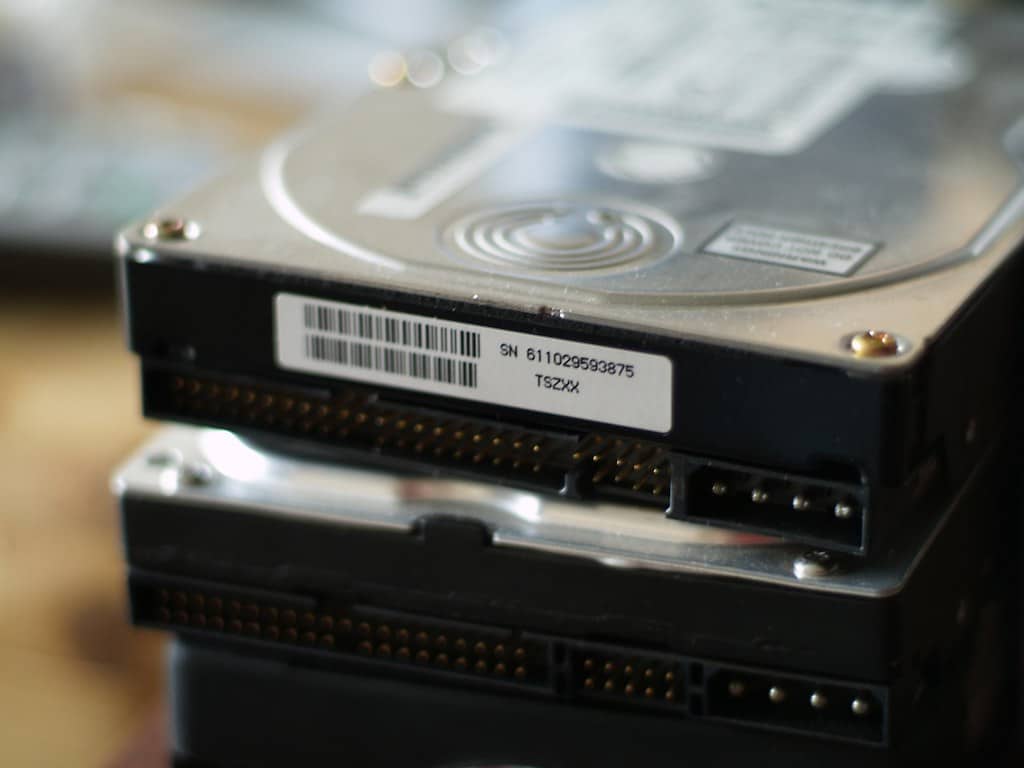Mechanical discs (also called hard drives (or HDD) have accompanied computing from the most remote eras, from the famous 16-bit era of the 90s with Windows 3.1 and Windows 95, up to more recent times, until the arrival of SSDs.
Since many laptops on modern operating systems require more performance, it is very common to switch from mechanical disk (HDD) to solid state disk (SSD); in the era of consumerism (unfortunately) Many people either throw away their old mechanical disks or, at best, leave them with the technician because they don’t know what to do with them.
However, there are several reasons why classic mechanical disks not only still have a lot to say but they can often come in handy on various occasions.
Mechanical disks are not dead, long live HDDs
There are several reasons why mechanical disks are not only not an obsolete technology, but they can be more useful than it might seem.
Data Backup and Storage
One of the main reasons why mechanical disks should not be thrown away is their low-cost storage capacity; HDDs offer a lot of storage space at a lower price than SSDs.
This makes them ideal for backup and archiving of data that does not require frequent access and you can therefore use old mechanical disks to create backup copies of your most important files, photographs, videos and documents, protecting them from possible losses caused by hardware failures or cyber attacks.
Recovery disks
Another practical use for HDDs is as recovery disks. Installing an operating system on an old mechanical disk can be an effective solution to have an emergency system ready to use in case of problems with the main disk and This can be especially useful for IT technicians or anyone who needs a stable and reliable working environment at all times.

External units
Are classic USB sticks too small and afraid of losing them? Old mechanical disks can be easily converted into external drives using a simple HDD case.
This allows you to have a portable and versatile storage device, which can be used to transfer large amounts of data between different computers, back up mobile devices or simply have extra space for specific projects.
Educational resource
For those who are interested in computers or want to learn more about hardware components, mechanical drives are a valuable educational resource.
Disassembling and studying the internal workings of an HDD can provide a great understanding of magnetic storage technologies and the operating principles of hard drives; Furthermore, it can be an interesting project for schools or study groups who want to explore the world of computer hardware.
Use in NAS systems and home servers
Network Attached Storage (NAS) are network-connected storage systems that allow you to share files between multiple devices; HDDs are often preferred for NAS use due to their high capacity/price ratio.

Setting up a NAS with old mechanical drives can improve the efficiency of a home or small office network, offering a centralized storage solution accessible from multiple devices.
Home Servers and Clouds
With commercially available docking stations, Mechanical disks can become a perfect resource for home servers; for example, if you don’t know where to put your data because your phone and PC are full and you don’t need to use USB sticks, There is nothing stopping you from creating a home server/cloud that allows you to preserve your data.
All the more so in recent times. where the most well-known companies (the famous technology giants) do not know exactly what they do with our data and files in general on their servers.
Data recovery
An old mechanical disk can be used to practice data recovery, a very useful skill for both personal and professional use.
Data recovery programs can often restore deleted files or recover information from damaged disks and Having a spare HDD to practice on can be invaluable in learning these techniques without risking important data.
Performance Optimization
Even though an HDD is slower than an SSD, there are ways to optimize its performance; using an old mechanical disk to install only less demanding programs or as a secondary drive for less used files can improve the efficiency of your system.
Additionally, the use of technologies such as SSD caching can significantly accelerate the performance of an HDD.

A very well-known example of this optimization practice is the use of the Windows paging file, which in fact allow you to optimize the performance of a Windows operating system, in short the paging files allow you to extend the virtual memory of the system using disk space, improving overall performance when RAM is low; therefore, by assigning the paging file to an old HDD, you can free up valuable space on the main SSD, dedicating it exclusively to the operations that benefit most from it.
It should be noted that macOS and Linux have their own equivalents: “virtual memory” and swap files, and this may apply for the other two operating systems too, roughly.
Contribution to environmental sustainability
Reusing mechanical disks instead of throwing them away helps reduce electronic waste, a growing global problem.
Properly disposing of HDDs when they are no longer usable is equally important, but extending their useful life helps reduce their environmental impact. Raising awareness among readers about these issues can encourage more sustainable practices.
Recovering legacy operating systems and software
If you’re a retrocomputing enthusiast or need to keep old applications that only run on outdated operating systems accessible, mechanical drives can be essential. Installing older operating systems on HDDs can allow you to run legacy software without compromising the performance of your modern hardware.
Security Considerations
Mechanical drives can be used to store sensitive data offline, safe from cyber attacks and data leaks; Keeping critical backups on HDDs that are not constantly connected to the network can add an extra layer of security.
IDE (or PATA) vs SATA, even old IDE mechanical disks still have something to say
Hard drives with IDE interface (Integrated Drive Electronics), also known as PATA (Parallel ATA), were the standard for connecting hard drives in computers for many years, before the advent of SATA (Serial ATA) technology; although SATA drives offer significant advantages in terms of data transfer speed, power efficiency, and ease of setup, IDE drives are not completely obsolete and can still find useful applications.
One of the main differences between IDE and SATA is the data transfer speed; while SATA disks can reach much higher speeds, up to 6 Gbps (SATA III), IDE disks are limited to 133 Mbps (ATA-133); despite this disadvantage, IDE drives can be used effectively in scenarios where speed is not a critical factor, such as for data backup, archiving less-used files, or recovering data from older systems..

IDE drives can be particularly useful for retrocomputing, preserving vintage hardware, or maintaining old operating systems and applications that require this interface; moreover, Many modern motherboards still offer IDE support through adapters or additional controllersallowing these disks to be integrated into newer systems.
For those who want to reuse old IDE drives, there are IDE-to-USB adapters that allow you to turn these drives into external drives and this is particularly useful for transferring data from old drives to new systems, perform backups or simply expand your available storage space.
In conclusion, even though SATA technology has almost completely replaced IDE in new systems, IDE drives are not without value and with the right adapter and a little ingenuity, they can continue to serve in many scenarios. helping to reduce electronic waste and make the most of available hardware resources.
Conclusion
In a world increasingly geared towards consumerism and planned obsolescence, it is important to remember that old hardware components can have a second useful life.
Mechanical disks, with their robustness and storage capacity, They are a perfect example of technology that can continue to serve a useful purpose even after being replaced by more modern solutions.
Reusing them creatively not only helps reduce electronic waste (WEEE), but also offers significant practical benefits and so, before you decide to throw away your old HDD, consider the many reuse possibilities it could still offer you.
#Mechanical #disks #thrown